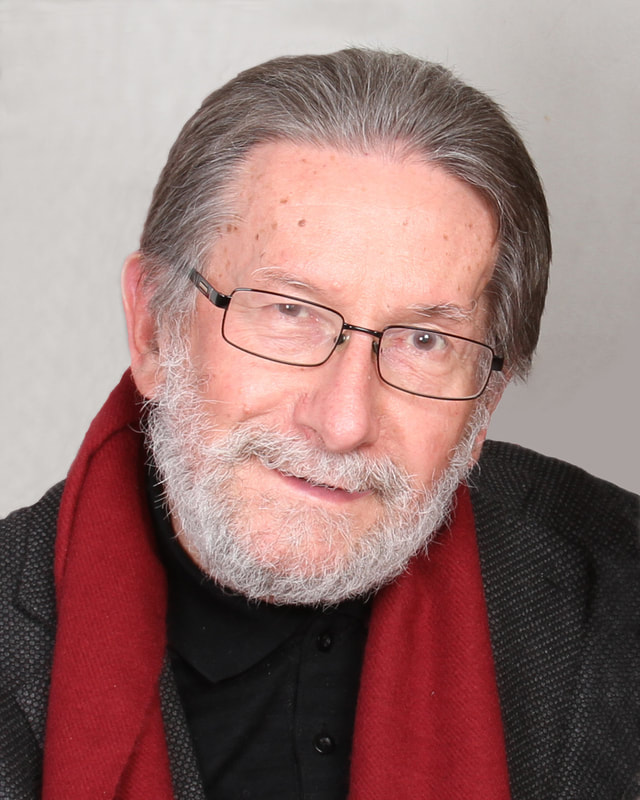|
While listening to the BBC in the small hours, which is my wont, in a program explaining why the public believes blatant lying by politicians, an expert in rhetoric offered a persuasive explanation.
As soon as I completed my morning ritual (exercise, shower, my first cup of coffee) I looked up Rhetoric in Wikipedia a very good starting point with any new topic, and discovered a paper on “Rhetoric of health and medicine”. What an eye opener! I also understood the power of catchy slogans and mantra, so here is one of my own: High level aged care is HEALTH CARE!. Simple message. Pity that no politician seems to understand it. And so on a linked theme, here is a copy of an article I submitted to MJA InSight, Issue 38 / 1 October 2018 Aged Care: A Geriatrician's view THE Prime Minister’s announcement of a Royal Commission into problems besetting the aged care industry and the ABC’s recent Four Corners exposé raise my hopes that perhaps there is light at the end of the tunnel for senior Australians living in residential aged care facilities. However, a great deal will depend on the terms of reference of the Royal Commission. I have been practicing as a specialist geriatrician for 45 years. Throughout that time and up to last week, I have undertaken home visits and visited residents in aged care facilities. I treat all patients identically, irrespective of the setting, at hospitals, clinics, private rooms, homes and residential facilities. Throughout that time, I have participated in and contributed to numerous high-level enquiries at federal, state, regional and local level. All begin with assumptions and a starting position and methodology that often leads to what amounts to tinkering with the status quo rather than major change. Royal Commissions take a very long time. In Australia, governments deal with difficult social problems by creating amorphous groups, such as “the aged” and “the disabled”, or equally amorphous issues, such as “aged care” and “mental health”, ostensibly to give them special attention and oversight by a Minister. This results in the creation of minority groups that are vulnerable to discrimination and exploitation. The special group’s access to mainstream services and institutions is then only through “special services”, which act as a barrier when they should have the same access as any other citizen. A major complication in this case is that residential facilities are outside the state health services arena, and services emanating from state hospitals, clinics, and community health services do not extend to residential facilities at all. State-employed geriatricians and psychiatrists do not visit residential facilities as part of their service obligation (not that home visiting is particularly common in this day and age), whereas they would visit state-run long-term care facilities as a matter of course. We seem to accept that aged care in its entirety is the rightful domain of the aged care industry (the starting position), even though entry into high level residential care is limited to people with enough physical, cognitive and mental impairment and disability to warrant this level of care. I contend that high level care is a level of health care. It is not an accommodation option that anyone can choose as a lifestyle. It is long term, continuing and palliative health care. The qualifications of carers and the carer time that it takes to provide this level of care is obvious and predictable. High level care is the most complex and demanding level of long-term and continuing care. It is not passive warehousing. It must actively include prevention, treatment, rehabilitation and palliative care. The gross failure of the system and the incapacity of the aged care industry to provide an even remotely adequate level of continuing and palliative care has resulted in all the horrendous instances of personal abuse and mismanagement that the Four Corners episodes have brought to public attention. The current providers of aged care may be able to run a hotel, but they are completely unable to run a hospital. If Oakden nursing home in South Australia had been a mental health unit, as the sign over the front door implied (“Mental health services for older persons”) and had faced health unit accreditation, and if the Mental Health Service had met its ethical and legal obligations regarding duty of care, we would never have heard of Oakden. But wait. Long before Oakden there were long-stay facilities managed by the state’s mental health service. They were called Makk House and McLeay House, and they provided a valuable service in dealing with behaviourally disturbed and difficult to place people. They were fully staffed by trained nurses, medical officers, and psychiatrists. For purely financial reasons (Commonwealth government funding), they became the Makk and McLeay Nursing Home at Oakden. The rest, as they say, is history. When the Oakden Report Response Plan Oversight Committee report of July 2018 is implemented, in South Australia, at least, an important element of high level residential care will be properly provided. Just as Oakden had a capable and effective ancestor, so did general long-term care. In the 1970s, I was the visiting specialist responsible for half of the long-stay wards of the Royal Adelaide Hospital at the Hampstead Centre. Again, they were properly staffed with access to all necessary specialist nursing and allied health professional expertise. The funding was from the state budget. In the 1990s and early 2000s, the network of domiciliary care and rehabilitation services that covered the whole metropolitan area of Adelaide and had outreach into rural and remote communities provided a very comprehensive home-based service for many thousands of people that makes My Aged Care look like amateur hour. They did not survive a series of very expensive reforms. Perhaps the saddest thing about this tragedy is that relatives have had to endure the anguish of finding out that the people, to whom they had entrusted the care of helpless people that they loved, had perpetrated callous abuse on them. They discovered this through very indirect means and had enormous difficulty having their concerns heard by anyone in authority. The Four Corners exposé will have raised alarm in other unsuspecting and already guilty relatives because “they put mother in a nursing home”. Many of these relatives were legally substitute decision makers, who were not only entitled to information but should have been consulted when any significant care decision was made, and they had the right to agree or disagree to any proposed action. They were also advocates for and defenders of the rights of their relative. Any standards accreditation should ensure that facilities understand this point and demonstrate that they are complying with this, one of the most important standards. All of the high level enquiries and undertakings that followed the Oakden disaster have resulted in no significant change. It will be business as usual, just with more rigorous standards assessment and a few more hours of clinical time. I will end on a positive note. Most of the facilities that I visit provide good quality care because the nurses, allied health professionals, and base-grade carers are decent dedicated people. Most of my working life is in rural and remote South Australia. The quality of residential care in rural towns is very much better, in every way, than in the metropolitan area. Country towns have true community spirit. An old person admitted to the local aged care facility has a history and understanding in that community, they may have been a teacher, a friend’s parent, the person who delivered Meals on Wheels. The people working in the facility in all capacities are mostly local people. The GP that was looking after them in the community and looked after them at the local hospital will continue to look after them at the nursing home. That GP will treat them with the same care and respect that they always have. The practice cared for them when they were born, and will continue to care for them as they die. Perpetrators of poor standards or abuse would be answerable to the whole town. I can confidently counsel partners and relatives that when somebody needs 24-hour care, entry into high level care is not an abandonment nor a condemnation to a living hell. I could go on and on. Anyone interested in greater detail can find it in my book, Dementia is different, available through my website. |
AuthorDr Mykyta was appointed as a Member of the Order of Australia for services to Geriatric Medicine and medical education in 2012. He has practised medicine for over 50 years and still travels all over South Australia seeing patients. He has treated close to 10,000 patients with Dementia. Archives
November 2019
Categories |


 RSS Feed
RSS Feed